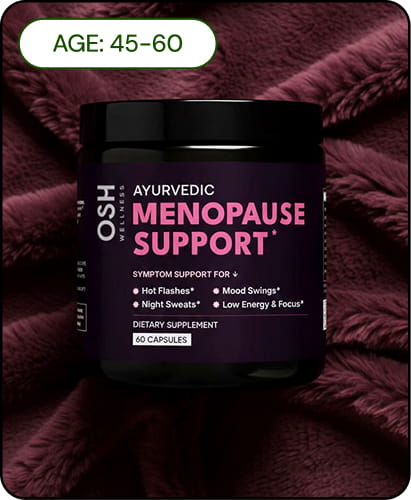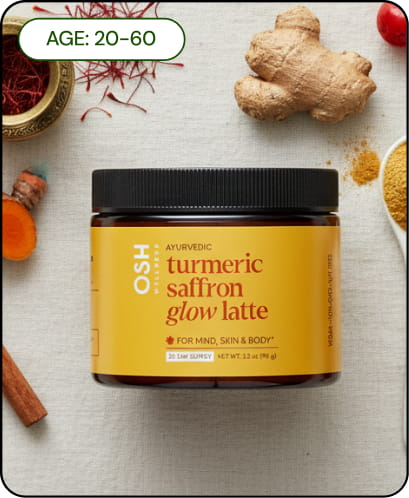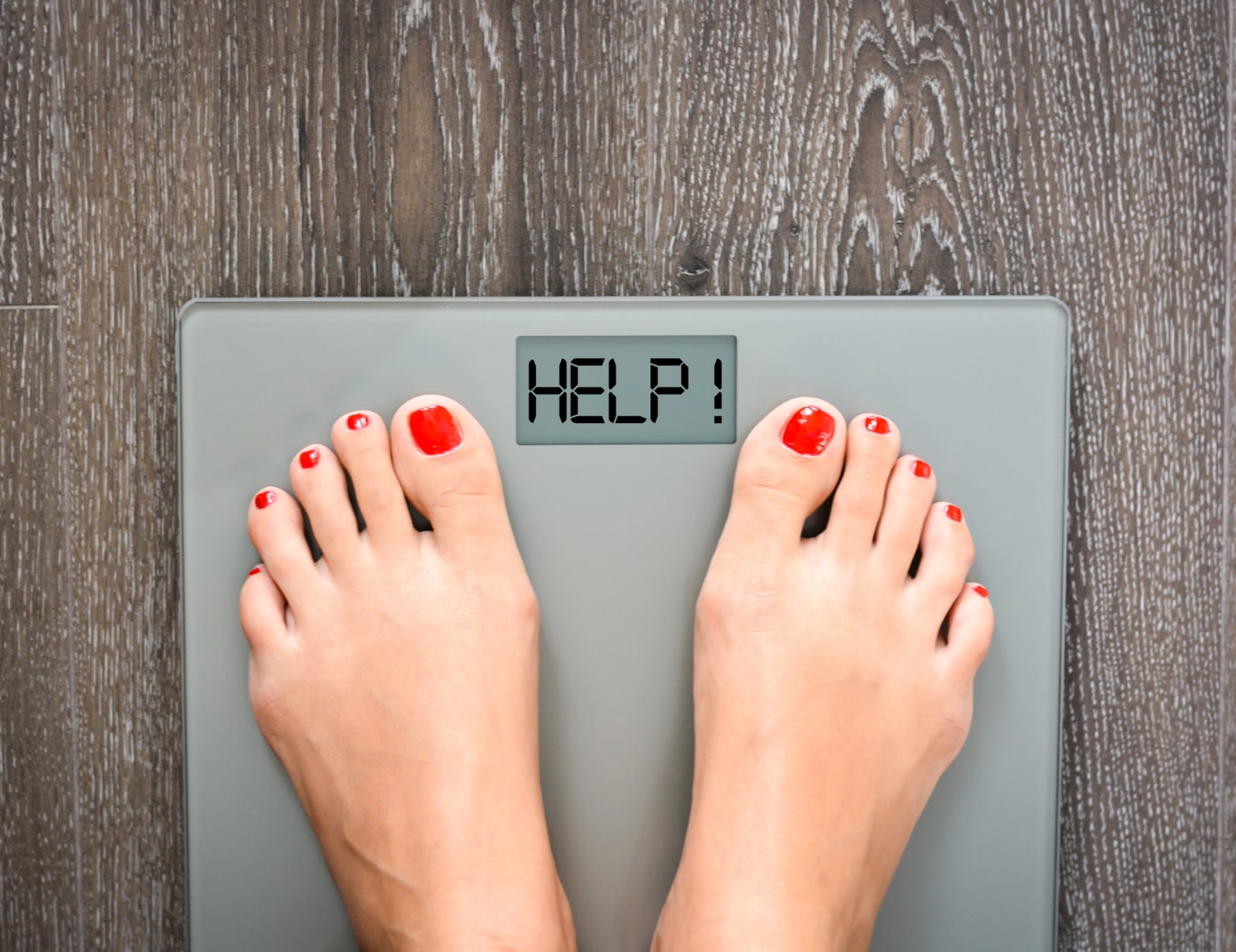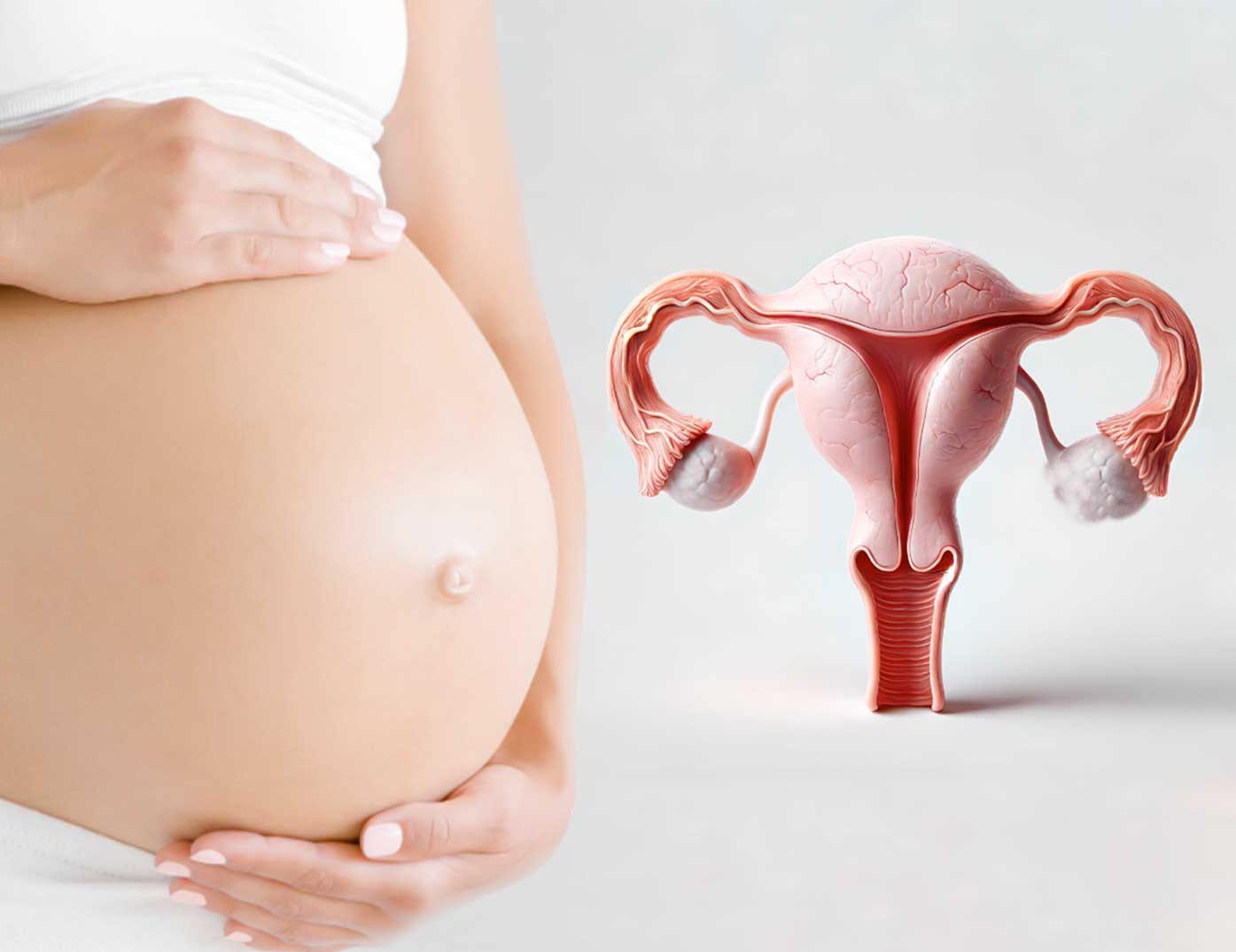Table of contents
Have you ever noticed a slight increase in your weight right before or during your period? If so, you're certainly not alone. Many women experience weight during periods, and it can be both frustrating and confusing. However, understanding the reasons behind this temporary weight gain can help you manage it better and reduce stress. In this article, we'll delve into the causes of period-related weight gain and share tips on how to manage it, ensuring you feel your best throughout the month. Whether you're aiming to maintain a healthy weight or simply seeking more comfort during your period, keep reading to discover everything you need to know about period-related weight gain.
The Science Behind Menstrual Weight Gain And Top Causes for Weight Gain During Periods
Slight weight gain during your periods is perfectly normal. There are several reasons for weight gain during periods. Let’s take a closer look at each.

Hormonal Changes
One of the primary reasons for weight gain during periods is hormonal changes. Throughout your menstrual cycle, your body produces progesterone, which can lead to water retention. This water retention can cause swelling or puffiness in areas such as your breasts, stomach, and extremities. While this temporarily increases your body weight, it doesn't mean an increase in fat. Moreover, this excess fluid normalizes once hormone levels rise again.
Food Cravings and Overeating
Do you wonder why you have cravings during periods? Cravings are very common during periods and may result in gaining a pound or two. Many women find themselves craving sugary or salty foods during their menstrual cycle, which can lead to overeating and an increase in weight. Additionally, mood changes experienced during this time can also contribute to overeating and subsequent weight gain. While it's unlikely you'll eat enough to gain a few pounds, you may retain extra water weight or feel uncomfortable after eating those extra sweets or salty foods.
Bloating and Constipation
If you feel tightness or swelling in your stomach or other parts of your body, it is likely to be because of bloating. Although this isn’t actual weight gain, it can make you feel as though you’ve added a few extra pounds. Hormonal changes during your period can lead to increased gas in your gastrointestinal (GI) tract, causing bloating. Additionally, water retention in your abdomen can contribute to this bloated feeling.
Low Magnesium and PMS Symptoms
During your period, magnesium levels decrease. Magnesium is important for maintaining the hydration of your body and low levels can cause dehydration. However, dehydration can often mask itself as hunger leading to increased cravings for sugary foods and ultimately causing weight gain.
Skipping the Gym
Skipping a workout here and there isn't a big deal, but if you aren't moving your body for a week, it may make you feel worse. Physical activity can help relieve symptoms associated with periods like bloating and cramps.
Common Misconceptions and Myths Associated with Periods Weight Gain
Even though most women experience periods at some point in their lives, there are still many myths and misconceptions surrounding this natural bodily process. Let's separate fact from fiction:
Myth: Period Blood is Dirty or Impure
Fact: Period blood is simply the shedding of the uterine lining, which is a normal and healthy part of the menstrual cycle. It is the same blood that circulates throughout the body and is not “dirty” or “impure.”

Myth: You Can't Get Pregnant During Your Period
Fact: While the chances of getting pregnant during your period are lower, it isn’t impossible. Sperm can survive in the reproductive tract for up to 5 days, and ovulation can occur at different times in the cycle, even during menstruation.
Myth: You Shouldn't Exercise or Bathe During Your Period
Fact: There is no medical reason to avoid exercise or bathing during your period. In fact, light exercise can help alleviate menstrual cramps, and warm baths can provide comfort.
Myth: Periods Should Last Exactly 7 Days
Fact: The average period lasts between 3-7 days, but the length can vary from person to person and cycle to cycle. As long as the duration is consistent for you, it is likely not a cause for concern.
Myth: Periods Synchronize Between Women Living Together
Fact: While some studies have suggested period synchronization, the evidence is inconclusive. Menstrual cycles are influenced by many factors and can naturally vary between individuals.
Tips for Managing Menstrual Weight Gain

It is completely normal to experience fluctuations in your weight during your periods. However, there are several things you can do to manage the weight gain and feel more comfortable.
Stay hydrated: Drink plenty of water to help minimize bloating and flush out excess water from your body.
Eat a healthy diet: Make sure you are eating a balanced diet rich in fruits, vegetables, and whole grains to manage your cravings and keep you feeling satisfied.
Limit Sodium Intake: Reduce your intake of salty and processed foods, as high sodium can contribute to water retention.
Exercise regularly: Remember, regular physical activity can help decrease your bloating and water retention, while also boosting your mood and energy levels.
Manage stress: Stress can worsen period-related symptoms, including weight gain. Indulge in stress-reducing activities like yoga or meditation into your routine to manage your stress and anxiety.
Get enough sleep: Sufficient rest, including 7-8 hours of sleep can help reduce stress and enhance your overall health and well-being.
Natural supplements: Ayurvedic supplements like Osh Wellness Hormone & Mood Support can help regulate your menstrual cycle and alleviate symptoms such as bloating and weight gain.
Home Ayurvedic Remedies for Prevention

Let us acquaint you with some home remedies and Ayurvedic tips to help prevent or manage weight gain during your periods.
Cumin, Coriander, and Fennel (CCF) Tea
This traditional tea has been known to help reduce bloating and water retention [ 1 ]. You can prepare this easily at home by boiling 1 tsp each of cumin, coriander, and fennel seeds in water. Strain and drink to get relief from bloating and menstrual cramps.
Ginger
Ginger also has anti-inflammatory properties that can help alleviate menstrual cramps and bloating [ 2 ]. You can either drink ginger tea or add fresh ginger to your meals.
Warming Oil Massage
Massage warm oil on your stomach and feet to stimulate digestion and reduce bloating. You can use a warm mixture of oils like coconut, sesame, and mustard oil.
Spinach
One cup of cooked spinach contains approximately 156 milligrams of magnesium. This can help relax muscles and may reduce cramping during your period. Additionally, magnesium is known to decrease PMS symptoms such as irritability and headaches.
Avocado
Include avocados in your meal as they are rich in potassium, which supports brain health and helps lower sodium levels. This, in turn, can increase urine production, reduce water retention, and alleviate period bloating.
Nuts and Seeds
Nuts and seeds are rich in B vitamins, including B1 (thiamine), B6, and riboflavin, which can help reduce PMS symptoms such as irritability, fluid retention, and bloating. You can consider options like unsalted almonds, pistachios, and sunflower seeds which are extremely beneficial.
Turmeric and Carom Seeds
Turmeric and Carom seeds are known for their anti-inflammatory properties that can help reduce bloating and cramps. Add them to your meals or take them as supplements.
Limit heavy and oily foods
Reduce your consumption of heavy and oily foods, as they can slow down digestion. Minimizing fried foods and excessive dairy products is essential as they cause sudden increase in weight.
Deep nourishment with Ayurvedic herbs
Ayurvedic herbs for weight management offer deep nourishment, promoting healthy weight gain. Herbs like Ashwagandha, Shatavari, and Gokshura are known for their ability to balance the hormones, support the digestive system, and enhance overall vitality during periods. Incorporating these herbs into your routine can provide a natural and holistic approach to weight management according to Ayurveda.
Conclusion
Weight gain and bloating during your menstrual cycle are common, but often manageable. Hormonal fluctuations, food cravings, and reduced physical activity can all contribute to temporary weight fluctuations. However, a combination of preventative measures like staying hydrated, eating a balanced diet, and exercising regularly can help minimize these issues. Incorporating Ayurvedic remedies like cumin-coriander-fennel tea, ginger, and warming oil massages can also provide natural relief. However, you must remember that it's important to be gentle with yourself. Understanding your body's natural cycles can help manage the stress of menstrual weight gain and bloating.
FAQs
How much weight do you gain during your period?
The amount of weight gain during your period can vary, but on average, women may gain 1-5 pounds (0.4-2.2 kilograms). This weight gain is usually temporary and should disappear once your period ends.
How long does period weight gain last?
Assuming your weight gain is temporary water retention and bloating, you will lose this weight in a week following your menses. This weight gain is usually due to hormonal fluctuations and water retention, which typically resolves once your period ends.
Do you gain weight before or after your period?
Most women tend to experience weight gain before their period, typically a few days leading up to the start of their menstrual cycle. This weight gain is usually due to water retention and hormonal fluctuations, and it typically goes away within a few days after the period begins.
How can I avoid gaining weight during my period?
Here are some tips to help you avoid weight gain during your period.
Avoid salt/sodium intake
Exercise regularly
Increase magnesium intake through food or supplement
Drink lots of fluids and stay hydrated
Follow a healthy diet
Avoid processed sugar and caffeine
Get proper sleep
Do not skip meals








